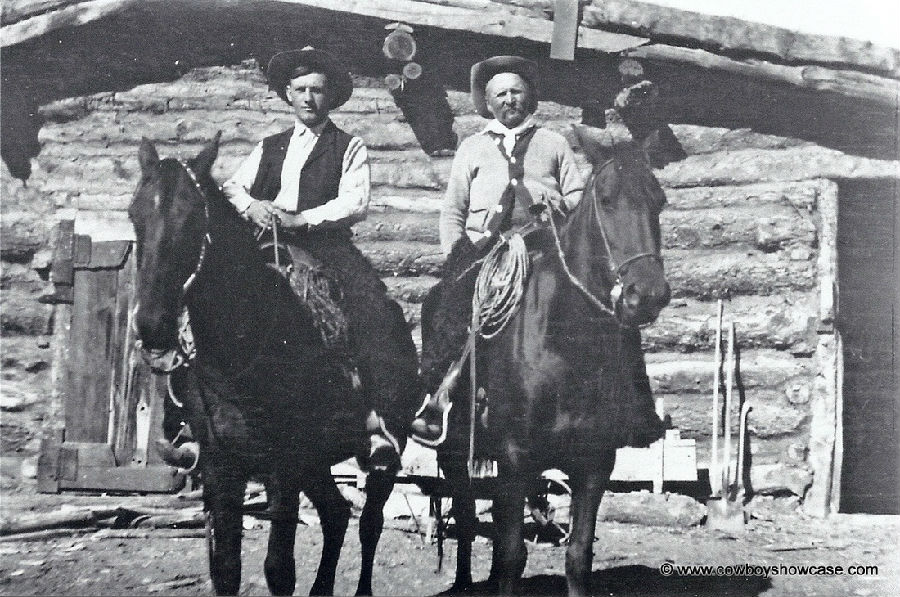(单词翻译:单击)
听力文本
Welcome to THE MAKING OF A NATION – American history in VOA Special English. Last week, we talked about the growth of the cattle industry. This industry started in Texas during the eighteen seventies. With its growth came a new kind of worker -- the man who watched and took care of the cattle. These men who watched the cows and rode with them as they moved across the wild lands were often young. Just boys. And so they were called "cowboys." This week in our series, Kay Gallant tells what life was like for the early American cowboy. People all over the world have seen all sorts of films about the cowboy. And he is often shown in television shows. But the real life of the cowboy is not often shown. His work has been hard, and his life lonely and full of danger.

The cowboy has told his own story in many songs and ballads. Hundreds of these have come from cowboys whose names are not known. They just sang these songs as they rode on the saddles of their horses across the cattle lands. Or, as they sat at their campfires at night. They sang about the things that were close to them. Horses and cows and danger and death. Often, they sang about the long ride to the cattle markets where the cows were sold for beef, as in this song called, "Git Along Little Dogie." Dogie is another name for a young cow, especially one which wanders away from the herd. The song tells how the young cowboy keeps driving the dogies forward. He feels sorry for them, because they will soon be sold for meat. But that's their hard luck, not his. And he keeps pushing them on while he sings. One of the most famous of cowboy ballads is this one, called "The Chisholm Trail."
Day and night, the horse was at the cowboy's side. A cowboy was as proud of his horse as he was of his skill in riding him. There is this feeling in the song "I Ride an Old Paint." A paint, or pinto, is a horse of three or more different colors. The cattle herds were driven a very long way to the cattle markets and had to be kept and watched on the open trail for many weeks. And the trail took the cowboys over rough country in all kinds of weather. The wild prairie lands were not friendly to men or animals. It was a lonely land. And the howling of wolves and winds at night made it more so. Across this strange land, no man in the early days of the West knew just where death was waiting for him. A listener hears the mournful feeling cowboys had for the prairie in this song called, "The Dying Cowboy." He does not want to be buried out in these wild lands -- in the lone prairie -- as the song says. Still, the dying cowboy does not get his wish. There is no choice. He can be buried only in the lone prairie in a narrow grave six by three. Six feet deep and three feet wide.
重点解析
1.take care of 照看;照料
I take care of them to the best of my abilities.
我尽我所能地照顾他们。
2.hundreds of 数以百计的;成百上千
I've had hundreds of calls from other victims.
我已经接到了其他受害人打来的上百个电话。
3.wait for 等候;等待
Just wait for me in the lounge.
请在休息室里等我就行了。
4.be proud of 为......自豪;骄傲
If I were you, I would be proud of him, too.
如果我是你,我也会为他自豪的。
参考译文
欢迎收听VOA慢速英语之建国史话节目。上周,我们讨论了养牛业的发展。该行业始于19世纪70年代的德克萨斯州。随着其发展,出现了一种新的工作者,即看管和照顾牛群的人。这些人照看牛群,骑着牛穿过荒野,他们通常都很年轻,只是男孩子,所以人们把他们叫做“牛仔”。在本周的系列节目中,凯·格兰特将讲述美国早期牛仔的生活。全世界的人都看过各种关于牛仔的电影,电视中经常播放。但是,牛仔的真实生活并不经常展现在公众面前。其工作艰辛,生活孤独,又充满危险。
牛仔用许多歌曲和民谣讲述自己的故事,其中数百首来自不知姓名的牛仔。他们骑在马鞍上穿过牛场时唱着这些歌,要么就是坐在篝火旁时歌唱。他们歌唱身边的事物,马和牛,危险和死亡。他们常常在歌中吟唱去牛市长途跋涉的故事,他们在牛市上卖牛肉,就像这首歌中唱的那样,“走开,小牛犊”。小牛犊是小牛的另一种称呼,特别是一种脱离牛群的牛。这首歌讲述了年轻的牛仔不断地把小牛犊向前赶。他为它们感到难过,因为它们很快就会被当作牛肉卖掉。但那是它们的不幸,不是他的。他唱歌的时候就在不停地赶着他们前行。最著名的一首牛仔民谣叫做“奇泽姆牛车道”。
日日夜夜,马都在牛仔身边。牛仔为他的马感到骄傲,因为骑马是他的一项技艺。在歌曲“我骑着旧油漆”中就有这样的感觉,油漆也叫做平托,是三种或三种以上不同颜色的马。牛群被驱赶很长一段路到牛市,不得不在开阔的小径上饲养和观察好几个星期。这条小径把牛仔们带到了风雨交加的乡村。野生大草原对人和动物都不太友好,那是一片荒凉的土地。狼嚎和夜晚刮起的大风使情况变得更糟。在这片陌生的土地上,早期的西部没有人知道死神在哪里等着自己。一位听客在一首名为《垂死的牛仔》的歌中,听到了牛仔们对大草原的哀伤之情。他不想被埋葬在这些荒野里,就像歌中所唱的孤独的草原。尽管如此,垂死的牛仔还是没有达成他的愿望。别无选择,他只能被安葬在大草原上一个狭窄的坟墓里。这个坟墓只有六英尺深,三英尺宽。
译文为可可英语翻译,未经授权请勿转载!


